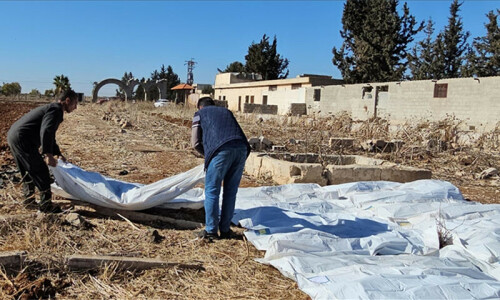
JUST as William Wordsworth had written a preface to his Lyrical Ballads (1800, expanded in 1802), justifying his poetry and the poetry of Romanticism, Altaf Husain Hali penned a muqaddama, or foreword, to his divan first published in 1893, stressing need for new kind of poetry. This foreword of Hali’s paved way for critical theories and modern literary criticism in Urdu.
It is true that Hali’s muqaddama to his divan, later on published separately under the title Muqaddama Sh’ear-o-Sha’eri, proved to be a virtual manifesto of Urdu’s new and modern poetry as well as a turning point in history of Urdu criticism, but it also gave way to the common misconception about Urdu’s literary criticism that it began with Altaf Husain Hali’s Muqaddama-i-Sh’ear-o- Sha’eri.
The fact is there were some practices in vogue to critically evaluate literary works much before Hali’s epoch-making work, albeit mostly unwritten, that served as yardsticks to determine the merits and demerits of Urdu’s literary works. For instance, during mushairas (poetry recital sessions), veteran poets would raise objections on any lacuna and maestros used to be quick to pinpoint any linguistic lapses. Professional jealousy among senior poets, too, resulted in jests and critical remarks on one another’s work. Skirmishes between Mushafi and Insha are point in case.
Another form of literary criticism was the tradition of islaah, or correction. This long-standing mentor-pupil relationship served as an institution in absence of any formal schooling or training centres for literary skills. A mentor would guide and counsel young poets, imparting necessary knowledge, techniques and critical ideas. The young poet would bring his work to the senior poet who would correct and/or suggest changes, practically teaching important lessons in poetics and rhetoric.
Secondly, some poets, such as Mulla Wajhi, Mir Taq Mir and Insha, had expressed their views on the nature and merits of poetry in their creative works, which underscore existence of critical notions, wrote Ibadat Bareliv, and it would not be fair to assume that Urdu was totally devoid of critical thought.
Thirdly, a written work, known as tazkira, was in fact the early form of Urdu’s written literary criticism. A tazkira is — or, rather was — a sort of anthology of select poets, often in alphabetical order, and with brief biographical sketches of the poets. A brief critical evaluation mentioning prominent aspects of a poet’s work was also included with sample verses. The early tazkiras of Urdu poetry were in Persian but later on Urdu tazkiras became more popular and now tazkiras, both Persian and Urdu, serve as very important sources of Urdu’s literary history and critical thought. Contrary to common perception, tazkiras are not totally useless or lack in useful information.
Hali had spent some 10 years perfecting the Muqaddama. It sent tremors across the subcontinent’s literary circles and kicked up a debate that is still going on. Hali had especially taken to task the genre of ghazal and poets of old-styled ghazals for their sole stress on amoral ideas. He also criticised Lucknow poets of masnavi and ghazal for their not-too-concealed erotic depictions. The traditionalists and lovers of ghazal were exasperated in general and Lucknow School in particular, taking Hali to task, writing satirical pieces by pseudonyms and calling Hali by strange, insulting names. Even Hasrat Mohani was not pleased and wrote against Hali in his periodical Urdu-i-M’ualla.
Sir Syed School and its supporters, on the other hand, praised Hali as Hali’s critical thoughts conformed to what they had been saying all along. As the initial uproar subsided, Muqaddama’s popularity began to soar since proponents of new criticism had embraced Hali’s work wholeheartedly and in the next 50 years or so some 70 editions were printed by different publishers, wrote Dr Waheed Qureshi in 1958. This number now must have touched 100, making Muqaddama Urdu’s most popular critical work.
It was Dr Waheed Qureshi who first offered an objective and unbiased review of Muqaddama, tracing Western sources in Hali’s critical notions. In intro to his edited version of Muqaddama, Dr Qureshi wrote that Hali knew very little English and would ask someone to translate what Western authors and critics had written on poetry and poetics. This resulted in misunderstandings and confusion. Also, Hali was under the influence of some Arabic texts on poetry. This was bound to result in conflicting views on poetry and Muqaddama is full of such contradictory statements that betray different sources, wrote Waheed Qureshi.
Another invaluable input came from Mumtaz Husain, the renowned critic, who endorsed some views expressed by Dr Qureshi. But Mumtaz Husain stressed that further research, on a larger scale, must be done on Hali. Dr Qureshi has pointed out many calligraphic errors in Muqaddama’s text. Ironically, his own edited version, too, could not escape printing and calligraphic errors.
A new edition of Muqaddama is in order.
Published in Dawn, September 4th, 2023












































Dear visitor, the comments section is undergoing an overhaul and will return soon.